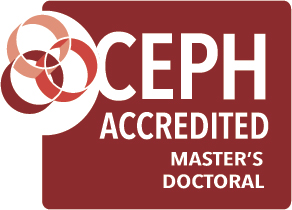MPH in Public Health Leadership: Whether you pursue public health work in government, non-governmental, for-profit or nonprofit organizations, you will be equipped with the skills needed to emerge as a prominent leader in the field.
Salary & Career Outlook
The average salary is $110,000 to $150,000 per year.
- According to the Bureau of Labor Statistics (BLS): About $104,280.
- Indeed: Reports an average salary of $113,000.
- Working up to a hospital chief information officer (CIO) has an average salary of $150,000 to $250,000 per year.
- Job outlook for the next 10 years: 28% (much faster than average).
Faculty & Staff
Learn more about our faculty and staff by visiting the CPH Faculty and Staff page.
Cost, Scholarships & Financial Aid
Total program tuition and fees cost estimates are available via the Office of Student Finance.
Scholarship opportunities are available for cohort applicants. All applications complete and verified in SOPHAS or HAMPCAS by March 15 (priority deadline) will be considered with no additional application is required. We suggest submitting your application by Feb. 15 to allow time for SOPHAS verification.
Financial Aid is available to support tuition, fees and living expenses. Average loans taken for HSC’s College of Public Health students are shared by the Financial Aid office.
If you have specific questions, please contact HSC’s Financial Aid Office via:
About the Program
Cohort full-time: Students take 12 hours each semester.
- Two years: Students complete the program in five semesters, including the summer.
- Fall entrance: New students begin the program each fall semester. There are no spring or summer start options.
- Small class size: Core classes range from 20 to 35 enrolled, concentration classes from 10 to 20 students.
Online Program
- Time frame: Students typically take two classes per 16-week term.
- Course schedule: Students are expected to participate in four professional development sessions each semester of enrollment.
- In addition, students are also required to complete six hours of community service each fall and spring.
Practice Experience
MPH students complete an intensive hands-on experience with local public health non-profits, governmental institutions or health systems.
Student complete their practice experience with organizations based on their field passions and career goals.
Students complete 400 hours over the course of three semesters.
Through this experience, students complete a significant project on behalf of the organization. This could entail designing and delivering a new education program, supporting and analyzing a deep data set or managing policy analysis and development.
Through this professional field experience, you will gain a professional reference, interview discussion materials and new confidence in your career path.
Program Details and Community Impact
A Master’s in Public Health Leadership is an advanced degree designed to equip you with the skills and knowledge needed for leadership roles in the health care industry. This program focuses on the intersection of leadership, management and public health. It prepares graduates to effectively influence and direct health care organizations.
Key components of the Public Health Leadership program:
- Leadership and management skills: Students learn how to lead teams, manage resources and implement strategies that enhance the effectiveness of health care organizations. This includes training in decision-making, conflict resolution and organizational behavior.
- Public health knowledge: The program integrates public health principles, ensuring that graduates understand how to address health care challenges on a population level. Courses cover topics such as epidemiology, health policy and health communication.
- Ethical and legal considerations: Students are taught to navigate the complex legal and ethical landscapes of health care. This includes understanding patient rights, health care laws and the ethical implications of health care decisions.
- Communication and collaboration: Effective leadership in health care requires strong communication skills. The program emphasizes the importance of clear, concise communication, both within an organization and with external stakeholders. Students also learn how to foster collaboration across different sectors of the health care system.
MPH in public health leadership program outcomes:
Graduates of the Master’s in Public Health Leadership program are prepared to:
- Lead health care teams and organizations with confidence.
- Make informed decisions that improve patient outcomes and organizational efficiency.
- Address public health challenges with a comprehensive understanding of health care systems and policies.
- Navigate the legal and ethical complexities of health care management.
In conclusion, a Master’s in Public Health Leadership is essential for advancing your career in health care management and leadership. It equips you with the tools needed to make a significant impact in the health care community.
Apply now in order to achieve your career goals with a Master’s in Public Health Leadership.
Core courses of the MPH in Public Health Leadership program:
- Theoretical Foundations of Individual and Community Health: This course introduces students to the key theories and models that underpin public health practices. It focuses on understanding the social and behavioral factors that influence health at both individual and community levels.
- Principles of Epidemiology: Students learn the basics of epidemiology, including how to measure and analyze health outcomes in populations. This course is essential for understanding how diseases spread and how to control public health threats.
- Introduction to Health Management and Policy: This course provides an overview of the health care system, including the development, implementation and evaluation of health policies. Students explore the roles of various stakeholders in shaping health care policy.
- Environmental Determinants of Health: This course examines the environmental factors that impact public health, such as air and water quality, climate change and occupational hazards. It also explores strategies for mitigating these risks.
- Health Politics and Policy: Students delve into the political processes that shape health care policy at the local, state and federal levels. This course covers the intricacies of health care reform, advocacy and the legislative process.
Master’s in Public Health principles in order to lead with confidence and make an impact
- Health communication strategies in public health: Effective communication is crucial in public health leadership. This course teaches students how to create and implement communication campaigns that influence public health behaviors and outcomes.
- Program planning and evaluation: In this course, students learn how to design, implement and evaluate public health programs. The focus is on applying practical tools and techniques to ensure that health programs achieve their intended goals.
- Organizational leadership: This course focuses on developing leadership skills specific to health care settings. Students learn about leadership theories, team dynamics and how to inspire and manage change within organizations.
- Leading people: This course emphasizes the human side of leadership, including how to motivate, mentor and develop teams. It also covers the challenges of leading diverse teams in a complex health care environment.
Elective courses: Students may also have the opportunity to choose from various elective courses that align with their specific interests and career goals. These might include topics like health informatics, global health or advanced policy analysis.
Applied practice experience: Towards the end of the program, students typically engage in an applied practice experience. This component allows them to apply what they’ve learned in a real-world setting, often by working on a significant project within a health care organization.
In summary, the courses included in a Master’s in Public Health Leadership program provide a comprehensive education that prepares students to lead effectively in various health care settings, equipping them with both the knowledge and practical skills needed to excel in their careers.
Apply now in order to achieve your career goals with a Master’s in Public Health Leadership.
The duration to complete a Master’s in Public Health Leadership program at UNTHSC is designed to accommodate both full-time and part-time students, providing flexibility for those balancing education with professional or personal commitments.
Typical completion time for the MPH in public health leadership degree:
- Full-time students: If you enroll full-time, you can expect to complete the Master’s in Public Health Leadership program in approximately 18 to 24 months. This timeline also includes completing all required coursework, capstone projects and applied practice experiences.
- Part-time students: For students who need a more flexible schedule, the part-time option allows you to spread your studies over 30 to 36 months. This path is ideal for working professionals who need to balance their studies with ongoing career responsibilities.
- Flexible start dates: UNTHSC offers multiple start dates throughout the year, including fall, spring and summer semesters. This flexibility also allows you to begin your studies at a time that best fits your schedule, without extending the overall duration unnecessarily.
Factors that can affect completion time with the MPH in public health leadership degree:
- Course load and program structure: The time to completion is influenced by the number of courses you take each semester. Full-time students typically enroll in more courses per semester, enabling a quicker completion, while part-time students can adjust their course load to manage other obligations.
- Capstone and applied practice experience: All students will engage in a capstone project or applied practice experience, which is a crucial part of the program. These practical experiences are integrated into the timeline, ensuring you gain hands-on knowledge without extending your overall study period.
In conclusion, at UNTHSC, you can complete your Master’s in Public Health Leadership in as little as 18 months as a full-time student, or take a more flexible approach and finish in three years or less if you choose to study part-time. Our program is designed to offer you the flexibility and support needed to achieve your educational and professional goals.
Apply now in order to achieve your career goals with a Master’s in Public Health Leadership.
Yes, the Master’s in Public Health Leadership program at UNTHSC is fully available online: It offers you the flexibility in order to advance your education from anywhere, at any time. Our online format accommodates working professionals, thus allowing you to balance your studies with your career and personal responsibilities.
Key benefits of our online MPH in public health leadership program:
- Flexible learning environment: The online program allows you to study at your own pace, making it easier to manage your coursework alongside other commitments. You can access lectures, assignments and resources at times that work best for you, whether that’s early in the morning or late at night.
- Interactive online platform: HSC’s online platform is designed to foster interaction and engagement. You’ll participate in live discussions, group projects and one-on-one interactions with faculty, ensuring that you receive the same quality education as on-campus students.
- Same rigorous curriculum: The online Master’s in Public Health Leadership program offers the same comprehensive curriculum as our on-campus program. You will cover essential topics in health care leadership, management, public health and policy, gaining the skills needed in order to lead effectively in today’s complex health care environment.
- Accessible faculty and support services: Even in an online setting, you’ll have full access to our dedicated faculty and support services. Whether you need academic advice, technical support or career counseling, our team is here to help you succeed.
- Networking opportunities: Despite being online, the program provides ample opportunities to connect with peers, alumni and industry professionals. These connections can be valuable as you advance your career in health care leadership.
In summary, the Master’s in Public Health Leadership program at UNTHSC is not only available online, but is also designed to provide you with a flexible, engaging and high-quality educational experience. Whether you’re looking to advance your career or pivot into a leadership role, our online program can help you achieve your goals without the need to relocate or disrupt your current life.
Apply now in order to achieve your career goals with a Master’s in Public Health Leadership.
The Master’s in Public Health Leadership program at UNTHSC equips students with the skills and knowledge needed to navigate and address the complex challenges in today’s health care industry. As the health care landscape evolves, this program prepares graduates to lead effectively and drive positive change in their organizations.
Key areas where the MPH in public health leadership program addresses current challenges:
- Adapting to health care reforms: The health care industry is frequently impacted by policy changes and reforms. Our program covers the latest developments in health care policy and teaches you how to implement these changes within your organization, ensuring compliance and optimizing patient outcomes.
- Managing public health crises: The recent global health crises, such as the COVID-19 pandemic, have highlighted the need for strong leadership in public health. This program trains you in crisis management, epidemiology and health communication strategies, preparing you to lead effectively during public health emergencies.
- Improving health equity: Health disparities remain a significant challenge in the health care system. The program includes courses on health disparities and community health, equipping you with the tools to address inequities and promote access to quality care for all populations.
- Leveraging technology in health care: With the increasing use of technology in health care, leaders must be proficient in health informatics and data management. Our program includes coursework on health care technology and data-driven decision-making, ensuring you can harness the power of technology in order to improve care delivery and operational efficiency.
Lead the way in making a lasting impact in health care with an MPH in public health leadership degree:
- Enhancing organizational efficiency: Health care organizations face constant pressure to do more with less. The program’s focus on organizational leadership and health management teaches you how to streamline operations, reduce costs and improve the quality of care, making your organization more resilient and sustainable.
- Promoting mental health and wellness: The importance of mental health and well-being has become increasingly recognized within the health care industry. The program covers strategies for promoting mental health in the workplace and improving the overall well-being of both patients and health care providers.
- Real life world applications: The program emphasizes practical application through capstone projects and applied practice experiences, allowing you to directly address real-world challenges faced by health care organizations. This hands-on approach ensures that you are not only knowledgeable about current challenges but also skilled in implementing solutions that make a tangible impact.
In summary, the Master’s in Public Health Leadership program at UNTHSC prepares you to tackle and overcome the most pressing challenges in today’s health care environment. By focusing on key areas like health care reform, public health crises, health equity, technology and organizational efficiency, the program empowers you to lead with confidence and drive meaningful change in your career.
Apply now in order to achieve your career goals with a Master’s in Public Health Leadership.
How does a Master's in Public Health Leadership program support growth in the health care community?
The Master’s in Public Health Leadership program at UNTHSC plays a crucial role in fostering growth within the health care community. It equips graduates with the skills, knowledge and leadership qualities needed to drive positive change and innovation. This program prepares students to take on leadership roles that advance their careers while contributing to the broader health care ecosystem.
Key ways the MPH in public health leadership program supports community growth:
- Developing future leaders: The program is designed to cultivate leaders who are capable of guiding health care organizations through complex challenges. By focusing on leadership theories, strategic decision-making and organizational behavior, the program prepares graduates to lead teams effectively and inspire innovation within their organizations.
- Promoting collaborative health care practices: The health care community thrives on collaboration across disciplines. The program emphasizes the importance of teamwork and interprofessional collaboration, training students to work effectively with diverse teams of health care professionals. This collaborative approach ensures that graduates can foster a culture of cooperation and shared goals within their organizations.
- Enhancing public health outcomes: Graduates of the program are equipped with the knowledge to design and implement public health initiatives that improve community health outcomes. By understanding the social determinants of health, health disparities and community engagement strategies, graduates can lead efforts that make a significant impact on population health.
Lead public health initiatives that enhance your community’s well-being
- Driving innovation in health care delivery: The program encourages students to think critically and creatively about how to improve health care delivery. Through coursework in health informatics, policy analysis and program evaluation, students learn to identify inefficiencies and implement innovative solutions that enhance the quality of care and operational efficiency.
- Building a network of health care professionals: As part of the program, students have the opportunity to connect with a network of health care leaders, alumni and industry professionals. These connections are invaluable for career growth and for fostering a sense of community among health care professionals dedicated to improving the field.
- Supporting continuous professional development: The program not only prepares students for leadership roles but also encourages lifelong learning and professional development. Graduates gain the skills to stay current with industry trends, pursue additional certifications and advance their careers while contributing to the health care community.
In summary, the Master’s in Public Health Leadership program at UNTHSC helps grow the health care community by developing skilled leaders. These leaders drive innovation, enhance public health and foster collaboration. Graduates are equipped to excel in their careers and make a lasting impact on the broader community.
Apply now in order to achieve your career goals with a Master’s in Public Health Leadership.
Career and Outlook
A Master’s in Public Health Leadership opens the door to a wide range of career opportunities within the health care industry. This advanced degree equips you with the leadership, management and strategic skills necessary to excel in various roles, from overseeing hospital operations to influencing health policy.
Key career paths you can pursue with an MPH in public health leadership degree:
- Hospital administrator: As a hospital administrator, you would be responsible for managing the day-to-day operations of a hospital or health care facility. This role involves:
- Overseeing departments.
- Managing budgets.
- Ensuring compliance with regulations.
- Improving the quality of patient care.
- Your leadership will also directly impact the efficiency and effectiveness of the health care services provided.
- Health services manager: In this role, you would manage specific departments or services within a health care organization, such as finance, human resources or patient services. Health services managers play a crucial role in coordinating and improving the delivery of health care, ensuring that operations run smoothly and effectively.
- Clinical director: As a clinical director, you would oversee the clinical operations of a health care facility, ensuring that patients receive high-quality care. This role involves:
- Managing medical staff.
- Developing policies.
- Ensuring that clinical practices also meet industry standards.
- Hospital chief financial officer: As a CFO, you would be responsible for the financial health of a hospital or health care organization. This role involves:
- Managing the organization’s finances.
- Budgeting.
- Forecasting.
- Financial planning.
- You would also play a key role in ensuring that the hospital remains financially viable while delivering high-quality care.
- Hospital chief information officer: As a CIO, you would oversee the information technology strategy and systems of a hospital or health care organization. This role involves:
- Managing electronic health records (EHR) systems.
- Ensuring data security.
- Leveraging technology in order to improve patient care and organizational efficiency.
Empower your career while contributing to health care excellence
- Health policy analyst: With a focus on health care policy, you could work as a health policy analyst, helping to shape and influence health care legislation and regulations. This role involves:
- Researching and analyzing health policies.
- Making recommendations in order to improve public health outcomes.
- Advocating for changes that will also benefit the health care system.
- Public health director: As a public health director, you would lead public health programs and initiatives at the local, state or national level. This role involves:
- Developing strategies to address public health challenges.
- Managing public health staff and ensuring that health programs effectively serve the community.
- Health care consultant: In this role, you would work as an external advisor to health care organizations, helping them to solve problems, improve efficiency and implement best practices. Health care consultants often specialize in areas such as health care management, strategy or technology, providing expert guidance to improve organizational performance.
- Nursing home administrator: If you’re interested in long-term care, becoming a nursing home administrator could be a fulfilling career path. This role involves:
- Managing the operations of a nursing home.
- Ensuring compliance with regulations.
- Providing a safe and supportive environment for residents.
- Health care executive: At the executive level, you could serve as a CEO, COO or other top-level leader within a health care organization. These roles involve setting strategic direction, making high-level decisions and leading the organization to achieve its goals.
Emerging health care leadership roles:
With the ongoing evolution of the health care industry, new roles continue to emerge, particularly in areas such as:
- Health informatics.
- Telemedicine and web based health care.
- Population health management.
Your Master’s in Public Health Leadership will prepare you to step into these cutting-edge roles and adapt to the changing landscape of health care.
In summary, a Master’s in Public Health Leadership prepares you for a diverse array of career paths, each offering the opportunity to make a significant impact on the health care industry. Whether you’re interested in managing a hospital, shaping health policy or leading public health initiatives, this degree provides the foundation you need to succeed.
Apply now in order to achieve your career goals with a Master’s in Public Health Leadership.
A Master’s in Public Health Leadership is a powerful catalyst for advancing your career in public health. This degree not only equips you with essential leadership and management skills but also deepens your understanding of public health principles, enabling you to make a more significant impact in the field.
Key ways the health care leadership program enhances your career:
- Leadership and management skills: The program emphasizes developing strong leadership and management abilities that are crucial for advancing in public health roles. You’ll learn how to lead teams, manage resources effectively and implement strategies that improve public health outcomes. These skills are essential for roles such as public health director, program manager or health services administrator.
- In-depth public health knowledge: The curriculum offers a comprehensive understanding of public health issues. This includes epidemiology, health policy and health disparities. This knowledge enables you to address complex public health challenges. You will also develop a well-rounded approach, making you a valuable asset to any public health organization.
- Strategic decision-making: With a focus on strategic planning and decision-making, the program prepares you to take on higher-level responsibilities in public health. You’ll learn how to analyze data, assess risks and also make informed decisions that drive positive public health outcomes. This is particularly valuable for those looking to move into executive roles within public health agencies or nonprofit organizations.
- Policy influence and advocacy: The program equips you with the tools to understand and influence health policy. You’ll learn how to:
- Advocate for public health initiatives.
- Shape policy decisions.
- Lead efforts to implement policy changes in order to benefit communities.
- Discover roles in government agencies, advocacy groups or policy research organizations.
Advance your leadership skills to drive public health success
- Networking and professional connections: As you progress through the program, you’ll connect with professionals, alumni and faculty who are leaders in public health. These connections can lead to mentorship opportunities, collaborations and career advancements. Building this strong professional network will support your career growth.
- Versatility in career options: A Master’s in Public Health Leadership gives you the versatility to explore a wide range of career paths within public health. Whether you’re interested in community health, global health, health education or public health administration, this degree provides the foundation you need in order to excel in various roles.
- Enhanced credibility and recognition: Earning a Master’s in Public Health Leadership enhances your professional credibility. It signals to employers and colleagues that you possess the advanced skills and knowledge needed to lead in public health. This recognition can lead to more opportunities for advancement, higher salaries and increased job security.
In summary, a Master’s in Public Health Leadership greatly enhances your career in public health. It provides you with the leadership, strategic and public health expertise needed to excel in various roles. Whether you’re aiming for a leadership position, seeking to influence health policy or expanding your impact in the community, this degree empowers you to achieve your public health career goals.
Apply now in order to achieve your career goals with a Master’s in Public Health Leadership.
Yes, several industry certifications can complement a Master’s in Public Health Leadership. They enhance your expertise and make you more competitive in the health care industry. These certifications provide specialized knowledge and skills that are valuable in certain roles. They also help you stand out as a well-rounded leader in the field.
Key certifications to consider as a supplement to a MPH in public health leadership degree:
- Certified in public health (CPH): The CPH credential, offered by the National Board of Public Health Examiners, is designed for public health professionals who want to demonstrate their commitment to public health knowledge and skills. This certification covers a broad range of public health topics, making it an excellent complement to your leadership-focused degree.
- Fellow of the American College of Healthcare Executives (FACHE): The FACHE credential is a highly respected certification for health care executives. It signifies a commitment to excellence in health care management and leadership. Earning this certification proves your ability to lead in complex health care environments. Employers often seek it for executive-level roles.
- Certified Healthcare Leader (CHL): Offered by the Association for the Healthcare Environment, the CHL certification is designed for leaders in health care environmental services. This certification is perfect if you’re pursuing roles in health care facility management, focusing on maintaining safe, clean and efficient environments.
- Certified Professional in Healthcare Quality (SPHQ): The SPHQ certification is offered by the National Association for Healthcare Quality and is geared toward professionals who focus on quality improvement in health care. This certification emphasizes quality management, performance improvement and patient safety — critical areas for any health care leader.
Maximize your impact by combining your degree with key certifications
- Project management professional (PMP): The PMP certification is offered by the Project Management Institute. It is valuable for health care leaders who manage projects or oversee large initiatives. This certification ensures you have the skills in order to effectively plan, execute and manage projects in health care settings. These abilities are essential for driving improvements and implementing new programs.
- Lean Six Sigma certification: Lean Six Sigma certifications, such as the Green Belt or Black Belt, focus on process improvement and operational efficiency. These certifications are especially useful for leaders aiming to streamline operations and reduce waste. They also help improve the quality of care in health care organizations.
- Certified Healthcare Financial Professional (CHFP): This is offered by the Healthcare Financial Management Association. The CHFP certification is ideal for those interested in the financial aspects of health care leadership. It covers essential topics like financial management, revenue cycle management and health care economics. These subjects complement the broader leadership skills you acquire in your degree.
Why do these health care leadership certifications matter?
Pursuing these certifications alongside your Master’s in Public Health Leadership deepens your expertise in specific areas. This makes you more versatile and effective in your role. Certifications also enhance your credibility. They show your commitment to continuous learning and professional development, both highly valued in the health care industry.
In summary, industry certifications can greatly enhance your Master’s in Public Health Leadership. They equip you with specialized skills and knowledge that further your career in health care. Whether your focus is on public health, quality management, financial leadership or process improvement, these certifications will help you excel in your chosen path.
Apply now in order to achieve your career goals with a Master’s in Public Health Leadership.
The average income for professionals with a Master’s in Public Health Leadership varies widely based on role, geographic location and additional certifications. Below is a summary of the average salaries for common career paths available to graduates, gathered from multiple authoritative sources.
- Hospital administrator: The average salary is $110,000 to $150,000 per year.
- The Bureau of Labor Statistics (BLS): Hospital administrators, classified under “Medical and Health Services Managers,” earn a median annual wage of about $104,280.
- Indeed: Reports an average salary of $113,000 annually for hospital administrators at HCA Healthcare.
- Job outlook for the next 10 years: 28% (much faster than average).
- Health services manager: The average salary is $80,000 to $140,000 per year.
- ZipRecruiter: The average in the DFW Area is $80,540.
- U.S. Bureau of Labor Statistics: Shows a national average of $110,680 per year.
- Job outlook for the next 10 years: 28% (much faster than average).
- Clinical director: The average salary is $90,000 to $140,000 per year.
- U.S. Bureau of Labor Statistics: Shows a national average of $110,680 per year.
- Salary.com: Reveals that Clinical Directors with proper certifications can make upwards of $300,000 a year.
- Job outlook for the next 10 years: Also around 28% (much faster than average).
- Hospital chief financial officer (CFO): The average salary is $140,000 to $517,000 per year.
- Job outlook for the next 10 years: 28% (much faster than average).
- Hospital chief information officer (CIO): The average salary is $150,000 to $250,000 per year.
- Job outlook for the next 10 years: 28% (much faster than average).
Maximize your impact and income with advanced health care leadership
- Health policy analyst: The average salary is $70,000 to $100,000 per year.
- Public health director: The average salary is $80,000 to $120,000 per year.
- Health care consultant: The average salary is $85,000 to $150,000 per year.
- Nursing home administrator: The average salary is $85,000 to $130,000 per year.
Additional factors that may have an impact on your career, salary and job outlook:
- Certifications: Earning certifications such as the Certified in Public Health (CPH) or the Fellow of the American College of Healthcare Executives (FACHE). This can further enhance your earning potential
- Location: Geographic location plays a significant role in salary variations. Higher salaries typically found in large cities or areas with a high cost of living.
In summary, income with a Master’s in Public Health Leadership varies widely based on role, location and certifications. However, professionals in this field can expect competitive salaries that reflect their responsibilities and expertise. These roles not only offer financial rewards but also provide the chance to make a significant impact.
Apply now in order to achieve your career goals with a Master’s in Public Health Leadership.
The career outlook for someone with a Master of Public Health in Public Health Leadership is very positive. This reflects the growing need for skilled leaders in health care and public health. Here’s a concise overview of what you can expect:
- High demand in health care: The Bureau of Labor Statistics (BLS) projects a 28% growth rate for roles such as hospital administrators and public health directors, which is significantly faster than average. This demand is fueled by an aging population and the expanding complexity of health care systems.
- Diverse career opportunities: Graduates can pursue various roles, including health policy analyst, public health director or health care consultant. The degree’s versatility also allows for adaptability across sectors, from hospitals to government agencies.
- Competitive salaries: Leadership roles come with attractive compensation, often exceeding six figures. For example, hospital CFOs and CIOs can earn between $140,000 and $250,000 annually, depending on location and experience.
- Impactful work: Beyond salaries, the work in public health leadership is deeply fulfilling, as it directly contributes to improving public health outcomes. Professionals in this field often report high job satisfaction.
- Adaptability and growth: The health care landscape is constantly evolving. An MPH in public health leadership equips you with the skills to navigate these changes, ensuring long-term career growth and stability.
To summarize, an MPH in public health leadership offers a promising career outlook. It includes strong job growth, high salaries and the chance to make a meaningful impact in public health.
Apply now in order to achieve your career goals with a Master’s in Public Health Leadership.
Admissions and Financial Aid
Yes, UNTHSC offers several scholarship opportunities and financial support options for students pursuing a Master’s in Public Health Leadership. Here’s an overview based on the latest information from the Office of Student Finance and the Financial Aid Office at UNTHSC:
UNTHSC-specific scholarships:
- Cohort scholarships: Scholarship opportunities are available specifically for cohort applicants. To be considered for these scholarships, your application must be complete and verified in SOPHAS or HAMPCAS by the priority deadline of March 15. No additional application is required for these scholarships. It’s recommended to submit your application by Feb. 15 to allow time for the verification process.
- Merit-based awards: Students with outstanding academic achievements may qualify for the dean, president or chancellor’s awards. These awards are valued at $2,000 or more and are distributed over the two-year program. Additionally, this award may qualify non-resident students for in-state tuition, which can significantly reduce the overall cost of the program.
Graduate assistantships available at UNTHSC:
- GA, RA and TA positions: UNTHSC offers graduate assistant (GA), research assistant (RA) and teaching assistant (TA) positions to MPH, MHA and MS students. These positions provide valuable work experience and a stipend, although they do not include tuition or fee waivers. Work hours are capped at 19 hours per week, allowing students to balance their studies with assistantship responsibilities.
Deadlines, financial aid and loans available for the MPH in Public Health Leadership Program:
Financial aid and loans:
- Financial aid: HSC offers financial aid options, including loans that can cover tuition, fees and living expenses. The Financial Aid Office provides average loan amounts taken by MPH students. This may extend beyond the actual cost of the program to include additional living expenses. For personalized guidance and more details, contact the Financial Aid Office.
Application and deadlines:
- Priority deadline: March 15 is the priority deadline for scholarship consideration, but applications should be submitted by Feb. 15 for timely processing.
Additional costs:
- International students: International students are automatically enrolled in student insurance coverage, with costs currently set at $997 per semester or $2,600 per year. It’s essential to factor in these costs when planning for the total expense of the program.
In conclusion, UNTHSC provides a range of scholarships, assistantships and financial aid options. By meeting application deadlines and exploring all available resources, you can significantly reduce your financial burden while pursuing your degree. Please contact the Financial Aid Office for further information.
Apply now in order to achieve your career goals with a Master’s in Public Health Leadership.
To be admitted to the Master’s in Public Health Leadership program at UNTHSC, applicants must meet the following criteria:
- Bachelor’s degree: A completed bachelor’s degree from an accredited institution.
- GPA: There is no minimum GPA requirement for any MPH program. While a 3.0 GPA is recommended, it is not mandatory.
- Letters of recommendation: Typically, two to three letters of recommendation are required. Ideally from academic or professional references who can speak to your leadership potential and academic capabilities.
- Statement of purpose: A personal statement or essay outlining your career goals, leadership experience and reasons for pursuing this degree.
- Resume/CV: A current resume or curriculum vitae highlighting your professional experience, particularly in health care or leadership roles.
- Standardized test scores (optional): Some programs may require or recommend GRE scores. This requirement however might be waived based on your academic or professional background.
For more detailed information, please contact the HSC Admissions Office. They can provide specific guidance to any additional questions you may have about the Master’s in Public Health Leadership program.
Apply now in order to achieve your career goals with a Master’s in Public Health Leadership.
Yes, UNTHSC allows the transfer of credits into the Master’s in Public Health Leadership program, but with specific conditions:
- Credit limit: Generally, up to 12 credits may be transferred from an accredited graduate program.
- Grade requirements: Only courses in which you earned a grade of B or higher are eligible for transfer.
- Relevance: The courses must be relevant to the public health leadership curriculum and must be approved by the program director.
- Accreditation: The credits must come from a regionally accredited institution.
For more detailed information, please contact the UNTHSC Admissions Office. They can provide specific guidance to any additional questions you may have about the Master’s in Public Health Leadership program.
Apply now in order to achieve your career goals with a Master’s in Public Health Leadership.
The average class size for the Master’s in Public Health Leadership program at UNTHSC is typically:
- Small to medium-sized classes: Ranging from 15 to 25 students per class. This therefore allows personalized attention and meaningful interactions with faculty and peers.
- Cohort model: In some cases, the program follows a cohort model. You progress through the curriculum with the same group of students, which fosters a collaborative learning environment.
Apply now in order to achieve your career goals with a Master’s in Public Health Leadership.
The program’s class schedule also accommodates working professionals.
- Evening and online classes: Classes are often scheduled in the evenings or offered online. This allows more flexibility for students who are working while pursuing their degree.
- Part-time and full-time options: The program offers both part-time and full-time enrollment options. Full-time students generally complete the program in 18 to 24 months. Part-time students on average take 30 to 36 months.
- Course load: Full-time students usually take three to four courses per semester. Part-time students usually take one or two courses, depending on their schedule and availability.
Apply now in order to achieve your career goals with a Master’s in Public Health Leadership.





















Social media